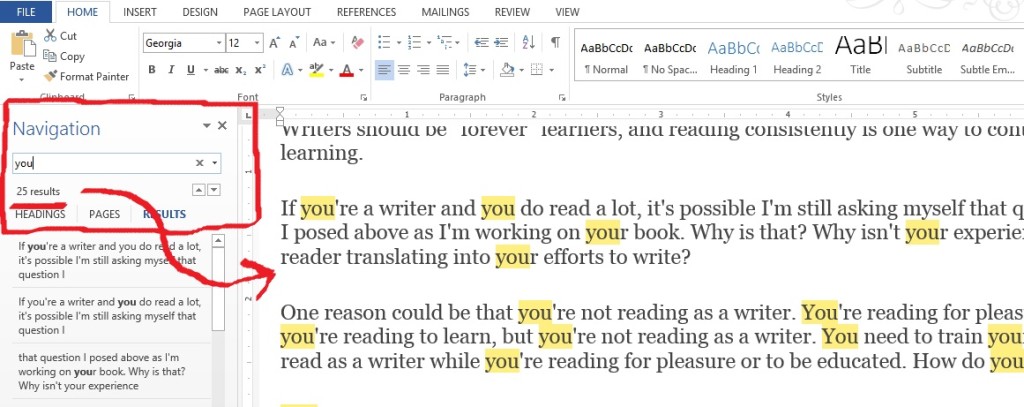You might be surprised to know how many times I ask myself, when I’m editing early drafts of books or books written by inexperienced (read “new”) writers, “Does this person read?” And I think you’d be surprised because I’m certain that in most cases, the answer is “Yes, I read. I read a lot!”
Writers need to read, and ideally, they should read a lot and from different genres. The more we read, the more we expose ourselves to different styles, different figures of speech, different ways of building a narrative, and different takes on perspective. Writers should be “forever” learners, and reading consistently is one way to continue learning.
If you’re a writer and you do read a lot, it’s possible I’m still asking myself that question I posed above as I’m working on your book. Why is that? Why isn’t your experience as a reader translating into your efforts to write?
One reason could be that you’re not reading as a writer. You’re reading for pleasure, or you’re reading to learn, but you’re not reading as a writer. You need to train yourself to do that. How, you ask?
You need to stop every now and then and think about how the author is telling the story. You need to think about the words they’re using–and the words they’re not using. Did they paint an incredibly vivid picture just now? Great! Go back and figure out how they did that. Did they do it strictly through descriptive words? I’d bet not. Did they do it through perspective, by showing you something through someone else’s eyes, by allowing you to feel what that person felt as they looked at whatever it was they were describing? Dissect what they did and learn from it.
Are you reading something for educational purposes, and the author is a whiz at taking something that’s fairly sterile or complicated or even boring and making it interesting and easy to learn? How did they do that? Is it in the words they chose? Is it in the way they broke up the presentation of the material into smaller chunks? What did they do that made it readable?
You can also learn from other writers’ mistakes and their weaknesses. Do they have a “crutch” word? Does it irritate you as you come across it for the 20th time? If so, be careful of that in your own writing. Word’s search feature makes it pretty easy to see how many times you use a certain word. You might be amazed by the words you fall back on time and time again.
I just copied and pasted what I had written of this blog post into Word and searched for “you” (by using the CTRL + F feature), and there were 25 uses of “you,” only five of which were contained within “your.” Given the context of this blog, that’s OK with me, but I was still a little surprised that of the almost 400 words I’d written, 25 of them contained “you.”
I’ve included a screenshot here for you so that you can see how easy Word makes it to check for your “crutch” words.
Chances are high that at least one of the reasons you decided to write was that you like to read. Capitalize on that. Continue to read as you learn how to write. And read the classics too. Learn from those who have done it well, and then find an editor to help you polish what you’ve done.
If you’d like to discuss your writing and your editing needs, send me an email at sharon@editorsharonhoneycutt.com or leave a comment on this blog. Thanks for visiting!


0 Comments
1 Pingback